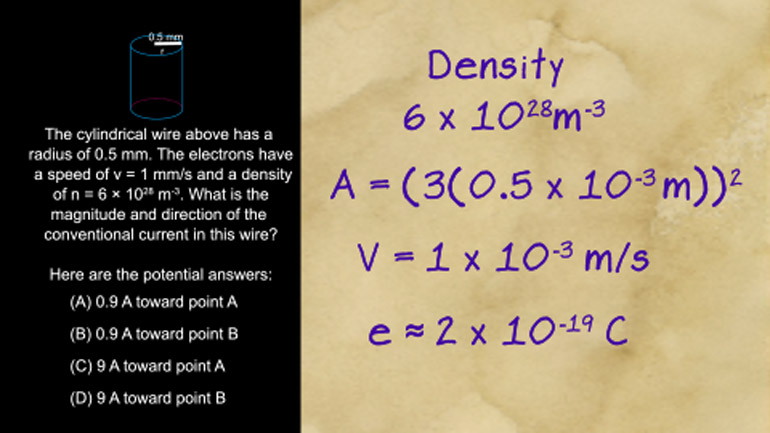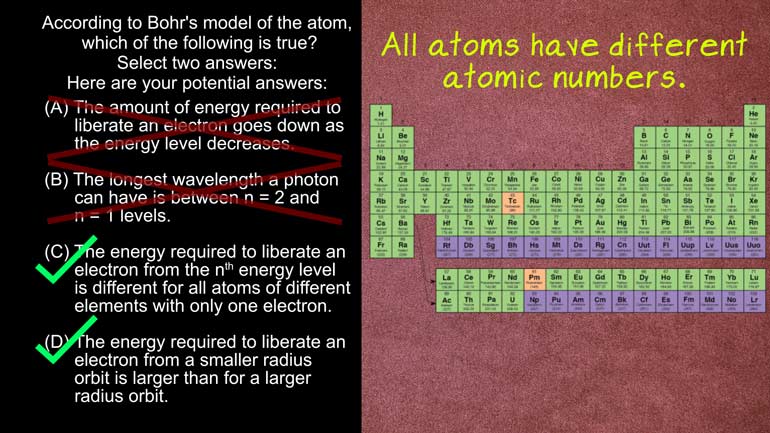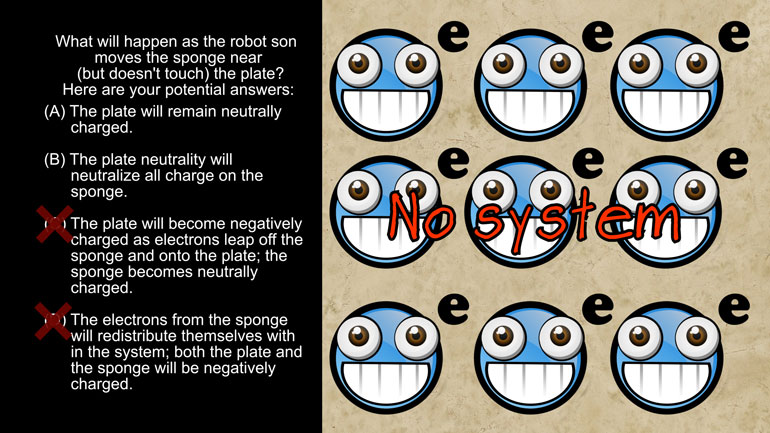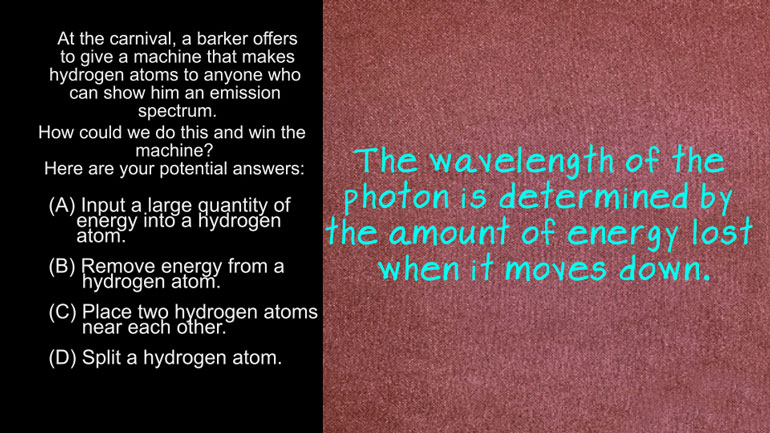ShmoopTube
Where Monty Python meets your 10th grade teacher.
Search Thousands of Shmoop Videos
AP Physics 2: 1.3 Systems Interactions and Changes 1 Views
Share It!
Description:
AP Physics 2: 1.3 Systems Interactions and Changes. When the circuit is completed, what current flows through the 750 ohm resistor?
Transcript
- 00:04
And here's your shmoop du jour brought to you by cupcakes because we
- 00:07
love bite-sized desserts whether they're supposed to be bite-sized or not let it [Woman swallows cupcake]
- 00:13
go Louis said his mother let it go no way
- 00:16
Louise would not rest until justice was served minutes earlier he had opened the
- 00:22
cupboard to find that his cupcake was missing Louise began his investigation [Luis opens cupboard]
Full Transcript
- 00:26
he lined up the usual suspects dad and Fido no one was talking or barking his
- 00:33
case was colder than a penguin at the Winter Olympic then Luis remembered [Penguin skiing]
- 00:37
something that might blow this case wide open the cops on that TV show had used a
- 00:42
lie detector so Luis built one for himself [Luis with a lie detector]
- 00:45
he hooked the suspects up one by one phyto just wagged his tail [Fido performing lie detector test]
- 00:50
dad denied the crime at first but for the questioning broke him he mumbled and
- 00:54
hesitated a single bead of sweat running down his face the buzzer sounded so we [Dad sweating while doing lie detector test]
- 00:59
could barely believe it cupcake crossed by his own father okay take a look at
- 01:04
the following diagram yeah this lie-detector a circuit took advantage of [Lie detector circuit diagram appears]
- 01:09
a suspect physical inability to lie a moist finger from a sweaty skinned liar
- 01:15
would complete the circuit and ring the buzzer when the circuit is completed
- 01:20
what current flows through the 750 ohm resistor assume that the buzzards
- 01:26
resistance can be ignored all right here is potential answer.....
- 01:31
we appreciate Luis quest for justice here but he probably could have baked a [Luis in a classroom]
- 01:36
dozen cupcakes in the time it took him to rig this thing up however it's the
- 01:39
principle of the thing that matters plus it's pretty sweet to get your dad
- 01:43
red-handed that's assuming it was a red velvet [Dad with red hand and red velvet cake appears]
- 01:45
cupcake of course in this circuit we have 1.5 volt batteries with a total
- 01:50
potential difference of three volts let's figure out the resistance we're
- 01:55
dealing with first we have four resistors here two of them are in series
- 01:59
so we can add those up to get a total resistance of 1500 ohms in that section
- 02:04
of the circuit now we have two resistors in parallel to calculate total [Finger points to resistors on diagram]
- 02:10
resistance in parallel resistors we need add the reciprocals of the resistances
- 02:13
then find the reciprocal of that sum and it looks like this now if we only have [Parallel resistance formula appears]
- 02:18
two parallel resistors we can also find the answer by multiplying your
- 02:21
resistances then dividing that by their sum no matter how we do the math the
- 02:26
answer is the same which is good because that's kind of how math is supposed to
- 02:29
work we have a total resistance of 500 ohms for this part of the circuit so now [Finger points to circuit]
- 02:34
we can look at the circuit as having two resistors in series one of 500 ohms and
- 02:39
one of a thousand ohm and we can add that to find a total resistance of 1500
- 02:45
ohm all right now we're getting somewhere
- 02:47
we can find the current using Ohm's law which states that the current equals [Ohm's law appears]
- 02:51
volts divided by resistance well in this case we have three volts and fifteen
- 02:56
hundred ohms giving us a current of two milliamps now to be frank at this point
- 03:01
we've pretty much forgotten what's question was in the first place but [Man scratches head]
- 03:04
looking back we're supposed to find the amount of current that's flowing through
- 03:07
the 750 ohm resistor there we go since one part of this Junction has a
- 03:11
resistance of 1500 ohms and the other has half of that 750 ohms [Arrow points to resistances]
- 03:16
yeah that's paths we know that twice as much current flows through the 750 ohm
- 03:21
resistance well we can look at it like this the total current equals 2I plus
- 03:27
I giving a total of three I that equals the current two milliamps
- 03:32
well one third of the current goes through the 1500 ohm resistance and we
- 03:36
double that to find the portion of current that flows through the 750 ohm
- 03:40
resistor which means the correct answer is d and if this situation ever happens
- 03:45
again well let's save everyone a whole lot of trouble and just chip in by [Dad gives Luis a cupcake]
- 03:49
Luis another cupcake
Up Next
Related Videos
AP Physics 2: 1.1 Properties of Objects and Systems. What is the magnitude and direction of the conventional current in this wire?
AP Physics 2: 1.5 Properties of Objects and Systems. According to the Bohr's model of the atom, which of the following are true?
AP Physics 2: 2.2 Properties of Objects and Systems. What will happen as the robot son moves the sponge near (but doesn't touch) the plate?
AP Physics 2: 2.4 Properties of Objects and Systems. How could you show the carnival barker an emission spectrum?




